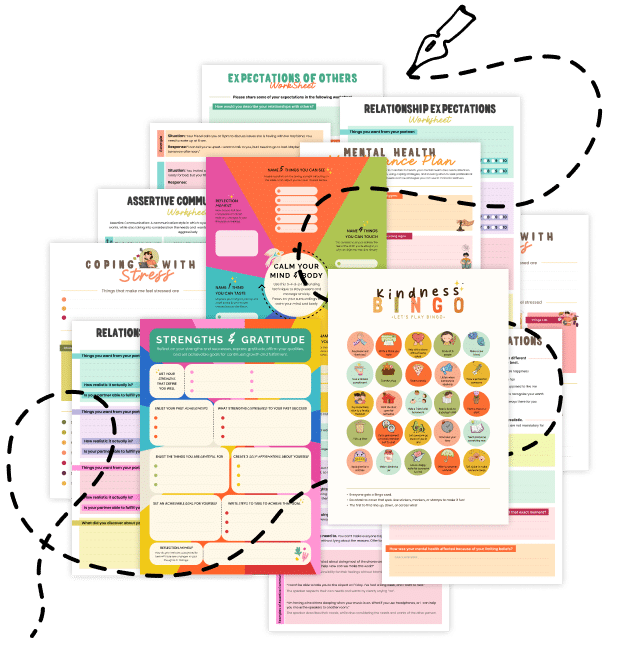20 Things to Know About Mood-Congruent Memory
Discover how your current mood can shape what you remember. Explore 20 essential insights on Mood-Congruent Memory, its effects on recall, and practical strategies to manage its impact on your thoughts and behavior.
1. What Is Mood-Congruent Memory?
Mood-Congruent Memory is the phenomenon where people are more likely to recall memories that match their current emotional state. When you’re happy, you remember positive events; when you’re sad, negative memories tend to surface.
2. The Brain’s Emotional Filter
Your mood acts as an internal filter, influencing which memories are easily accessible. This natural process helps explain why emotions play a critical role in shaping our past experiences.
3. Research-Backed Phenomenon
Numerous studies in cognitive psychology have confirmed that mood can significantly influence recall. Researchers have found that individuals recall mood-congruent information more readily than mood-incongruent details.
4. Impact on Daily Life
Mood-congruent memory affects everyday decisions—from the way you perceive social interactions to how you interpret your successes and failures. It can reinforce your current mood by selectively recalling memories that match it.
5. Positive vs. Negative Moods
A positive mood generally enhances the recall of happy, uplifting experiences, while a negative mood can lead to the recollection of distressing or discouraging events. This bias can sometimes create a feedback loop, where your mood and memory influence each other.
6. Influence on Self-Perception
If you’re feeling down, you might recall more failures or criticisms, which can further lower self-esteem. Understanding this bias is key to challenging negative self-perceptions.
7. Role in Mental Health
Mood-congruent memory is linked to conditions like depression and anxiety, where negative mood states perpetuate negative memories. Therapeutic techniques often focus on breaking this cycle to improve emotional well-being.
8. Practical Example: Exam Anxiety
Imagine feeling anxious before an exam. You might recall past test failures more vividly than successes, which could amplify your stress. Recognizing this bias can help you adjust your mindset.
9. Enhancing Emotional Balance
Being aware of mood-congruent memory can empower you to counteract its effects. Techniques such as cognitive restructuring can help you challenge negative memories and focus on more balanced, realistic recollections.
10. Mindfulness and Self-Awareness
Mindfulness practices can help you recognize when mood-congruent memory is influencing your thoughts. By observing your mood without judgment, you create space to evaluate whether your memories are skewed by your current emotions.
11. Reframing Negative Memories
When negative memories dominate, try to reframe them. Ask yourself what positive lessons you can extract or consider alternative perspectives. This can gradually shift the focus from purely negative recollections to a more balanced view.
12. The Role of Context
The context in which a memory is formed matters. Environmental cues, social settings, and even time of day can interact with your mood, influencing which memories become more prominent.
13. Emotional Regulation Techniques
Practicing emotional regulation strategies, such as deep breathing or progressive muscle relaxation, can help stabilize your mood. A balanced mood can lead to a more even-handed recall of memories.
14. Journaling as a Tool
Regular journaling can help track your mood and the memories that come to mind. Over time, you may notice patterns and learn to question whether your recollections are influenced by your current emotional state.
15. Balancing Perspective
To counteract mood-congruent memory, actively seek out information or memories that are contrary to your current mood. For example, if you’re feeling low, intentionally recall a positive experience or look at photos from a joyful event.
16. Social Support
Talking with friends or a therapist can provide external perspectives. They can help remind you of balanced experiences, preventing you from getting stuck in a negative memory loop.
17. Practical Applications in Therapy
Therapists often use cognitive-behavioral techniques to help clients recognize mood-congruent biases. Techniques like thought records can assist in identifying and challenging mood-driven memory distortions.
18. Impact on Decision Making
Mood-congruent memory doesn’t just affect recollection—it can also shape your decisions. Being aware of this bias helps you make more informed choices by considering a broader range of experiences.
19. Continuous Self-Monitoring
Regularly check in with yourself about how your mood might be influencing your memory. This self-monitoring can help you maintain a more balanced perspective, even during challenging times.
20. Related Topics to Explore
- Cognitive Defusion: Techniques to distance yourself from negative thoughts.
- Metacognitive Monitoring: Keeping track of how your thought processes are influenced by mood.
- Self-Talk Restructuring: Transforming negative internal dialogue to foster a balanced outlook.
- Adaptive Confidence: Building resilience and realistic self-assurance in the face of negative mood states.
Quick Tips to Manage Mood-Congruent Memory
- Practice Mindfulness: Engage in mindfulness exercises to stay present and aware of your mood.
- Keep a Journal: Record your thoughts and emotions to identify patterns in mood-influenced recall.
- Challenge Negative Bias: Actively seek out positive memories when you’re in a negative mood.
- Talk It Out: Share your feelings with supportive friends or a therapist for an external perspective.
- Balance Your Environment: Surround yourself with diverse cues—both positive and neutral—to counteract mood biases.
Mood-Congruent Memory is a powerful phenomenon that shapes how we remember our experiences, often reinforcing our current emotional state. By understanding and managing this bias, you can work toward a more balanced and accurate recollection of your past—leading to better decision-making, improved mental health, and a more positive self-view.
Share this article with anyone curious about how mood influences memory. With a few practical strategies and a mindful approach, you can learn to harness the power of your memories for greater well-being and resilience.

